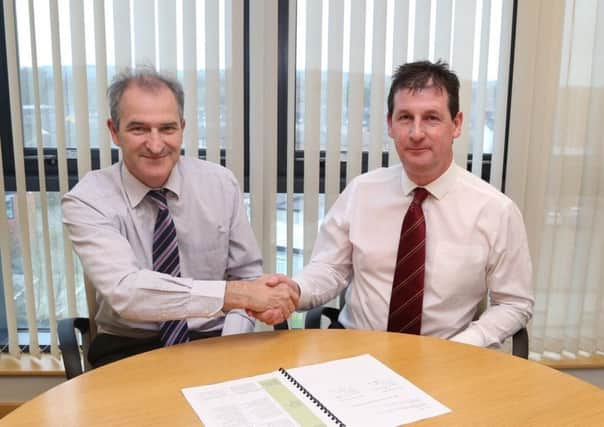MOU should deliver for farmers and environment


Farmers and the Agency have often been at loggerheads over issues and inspections and, with the ongoing pressures on farms and the need to make environmental improvements, it is hoped that working closer together will help to deliver for both farmers and the environment.
The MOU mainly deals with how farmers and the NIEA work together. The Union put forward simple measures to enhance working relations such as the NIEA committing to giving a minimum of seven days notice for routine cross-compliance inspections as permitted by EC rules (providing it does not compromise the nature of the inspection).
Advertisement
Advertisement
Another important issue agreed by NIEA was the need for inspectors to normally attempt to obtain permission before entering a farmyard which wasn’t always happening in the past (NIEA have legal powers to enter any premises to carry out their duty with or without permission).
Meanwhile, the UFU will feed back information on farming issues and pressures to NIEA to ensure the NIEA staff out on the ground are familiar with the everyday stresses on local farms and the Union will continue to input into NIEA’s engagement with landowners on a range of issues such as designated sites, IPPC, waste, wildfires, biodiversity and water.
The UFU will also help to ensure that farmers are aware of their environmental commitments through the promotion of guidance etc and will encourage members to support and get involved with appropriate environmental projects and schemes.
NIEA have also committed to not retrospectively inspecting records for farmers who sign up for the nitrates derogation (allowing an N loading of up 250kgN/ha/year as approved by the EC) for the first time. This is a positive outcome and should encourage more farmers to apply for the nitrates derogation.
Advertisement
Advertisement
A large part of the MOU focuses on improving guidance and training for local farmers with the aim of improving environmental compliance and reducing pollution incidents. It is largely recognised that the vast majority of non-compliances or pollution incidents are caused by either carelessness, confusion or accidents on farms therefore it is hoped if more focused information and guidance can be given to farmers then the number of incidents and penalties could be reduced resulting in improvements for the farmer and the environment.
A key frustration for many farmers is the current cross-compliance penalty system which requires NIEA to apply a penalty immediately if any non-compliance is detected, even where there is no pollution. This issue isn’t unique to Northern Ireland and farmers across the EU have been highlighting the need for the EC to permit the implementation of a ‘yellow card’ system to deal with some cross-compliance issues and this is something the Commissioner had committed to consider. Within the MOU, NIEA have agreed to explore new ways of dealing with low severity incidents within cross-compliance and will engage with the EC on this, which is to be welcomed.
Many of the actions contained within the MOU have been in place for some time however, the MOU now formalises these and ensures that there is a commitment from both organisations to deliver going forward.
While this is not currently softening the NIEA regulatory approach it is improving the process of regulating. The next steps will require an implementation plan to be drawn up and the MOU will be regularly reviewed with both parties having an opportunity to withdraw from this arrangement if they feel it is no longer delivering.
Advertisement
Advertisement
It is hoped that this MOU will result in more consistent and proportionate approach that will treat farmers fairly and in line with other sectors. Farmers need a healthy environment to farm and it is in everyone’s interest to work towards achieving this goal.